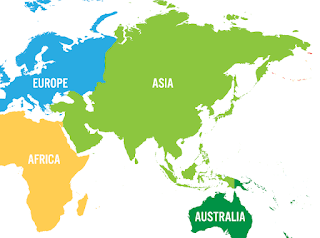A discussion and comparison of the influence of customs and customary law in African and Asian legal systems.
Customary law in Africa and Asia prior to colonialism was considered as law or processes used to resolve conflicts either by informal or formal means. These customs governed a group of indigenous people and could change depending on the location in the country. After colonialism, these customary or local methods were incorporated into the formal framework of governing laws implemented by colonial regime. The continuity of customary law into the modern nation was mandated as not to destroy cultures. The British colonial regime infused a doctrine of indirect rule, so as to keep intact local hierarchies, laws, and customs. Customary law has remained a strong influence in the developing world, especially in countries where the apparatus of the nation state does not extend to every quarter of the country.
In the case Ghana and Nigeria, customary law as relates to traditional marriage practices are still construed as legitimate and part and parcel of the laws of the land. Specifically, marriage was traditionally a rite officiated by families and local elders before the introduction of formal English registration and registry documents. In Nigeria and Ghana, persons married either by customary/ traditional or by registration are both deemed to be married. Customary law and common law as per marriage both equally recognized. However, in some cases customary law can be made subordinate to local, state, or federal.
Customary marriage is the most common form of marriage in Ghana and Nigeria. The specific customary marriage ceremonies vary depending on region. However, in most cases customary marriage involves a gathering at which the bridegroom’s family makes payment of a bride-price, the provision food (yams, cassava, bread), beverages, to the bride’s family. This is followed by the bride being asked if she will accept the bridegroom as her husband. Some couples perform this alone as a marriage ceremony, however, most couples also go on to perform the western wedding in a church or in the Government Registrar’s office in addition to the traditional marriage ceremony.
In India the framework of customs and local hierarchies has largely remained the same for over a 1,000 years. This is embodied by the deeply entrenched caste system which has also impacted inter caste marriage, local land law, plus ownership and representation. The Hindu Succession Act, 1956 codifies centuries of customary Hindu succession law and inheritance. Instead of seeking to modernize the social hierarchy the newly independent India government in effect maintained the status quo.
There will be always tensions between the desires of a modern nation with forward thinking modernizing views on customs and traditional views wedded to the past. These can be best viewed in how customary law of India and traditional customs have impacted views of morality. The traditional custom of bride dowry has been passed on for generations. However, it has not been until recently that the Indian Government has outlawed the practice in an attempt to shift customs and morality.However, certain Hindu customs are enshrined into law such as the custom of "Saptapadi" has been transformed into customary law, with ‘seven steps' for completion of a formal Hindu Marriage. Without ‘Saptapadi' the Marriage is not complete. According to Hindu Marriage Act,1955, divorce can only be taken by way of a decree of a court. This is however subject to the exception that if the divorce is sanctioned by the custom, that will be duly recognised by law. According to this Act, marriage cannot be held between the parties within the degree of prohibited relationship.
Singapore in comparison to India, Nigeria and Ghana does not have any customary law established at the same level as English Common law. There is no recognition of customary marriage or norms.Customs do not have the force of law unless they are recognized in a case and customs are not given recognition as law unless they are certain and not unreasonable or illegal.
Law Tutors Online, UK Law Tutor, UK Law Notes, Manchester Law Tutor, Birmingham Law Tutor, Nottingham Law Tutor, Oxford Law Tutor, Cambridge Law Tutor, New York Law Tutor, Sydney Law Tutor, Singapore Law Tutor, Hong Kong Law Tutor, London Tutors, Top Tutors Online and London Law Tutor are trading names of London Law Tutor Ltd. which is a company registered in England and Wales. Company Registration Number: 08253481. VAT Registration Number: 160291824 Registered Data Controller: ZA236376 Registered office: Berkeley Square House, Berkeley Square, London, UK W1J 6BD. All Rights Reserved. Copyright © 2012-2024.


